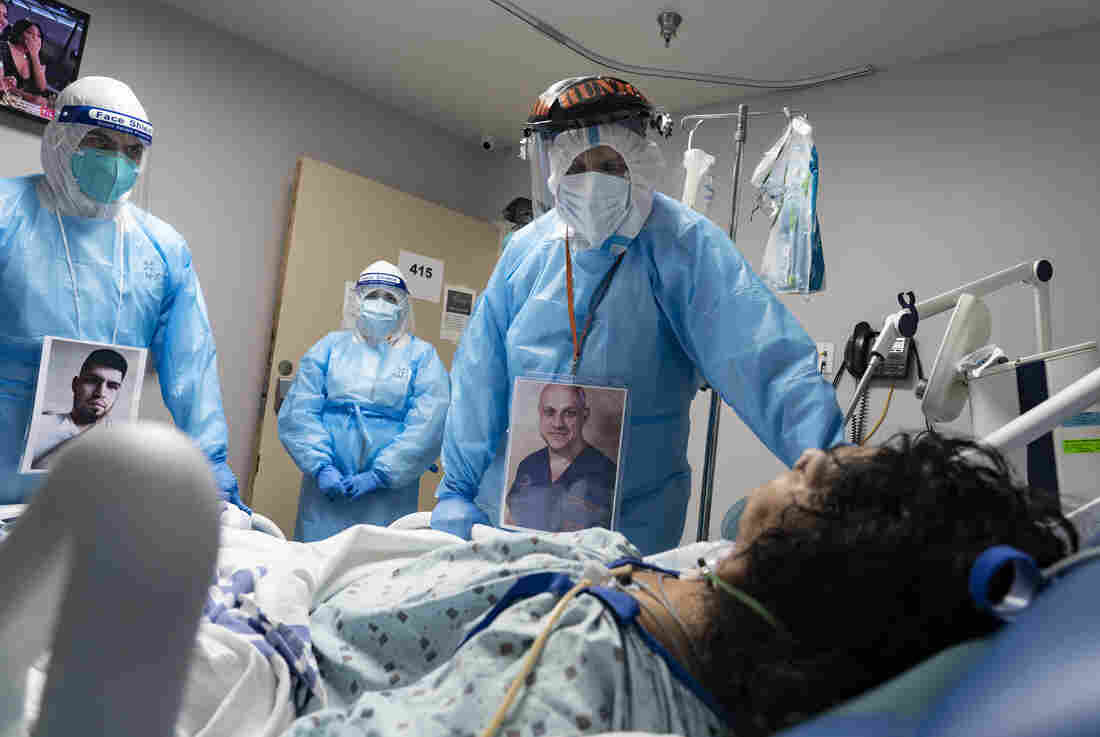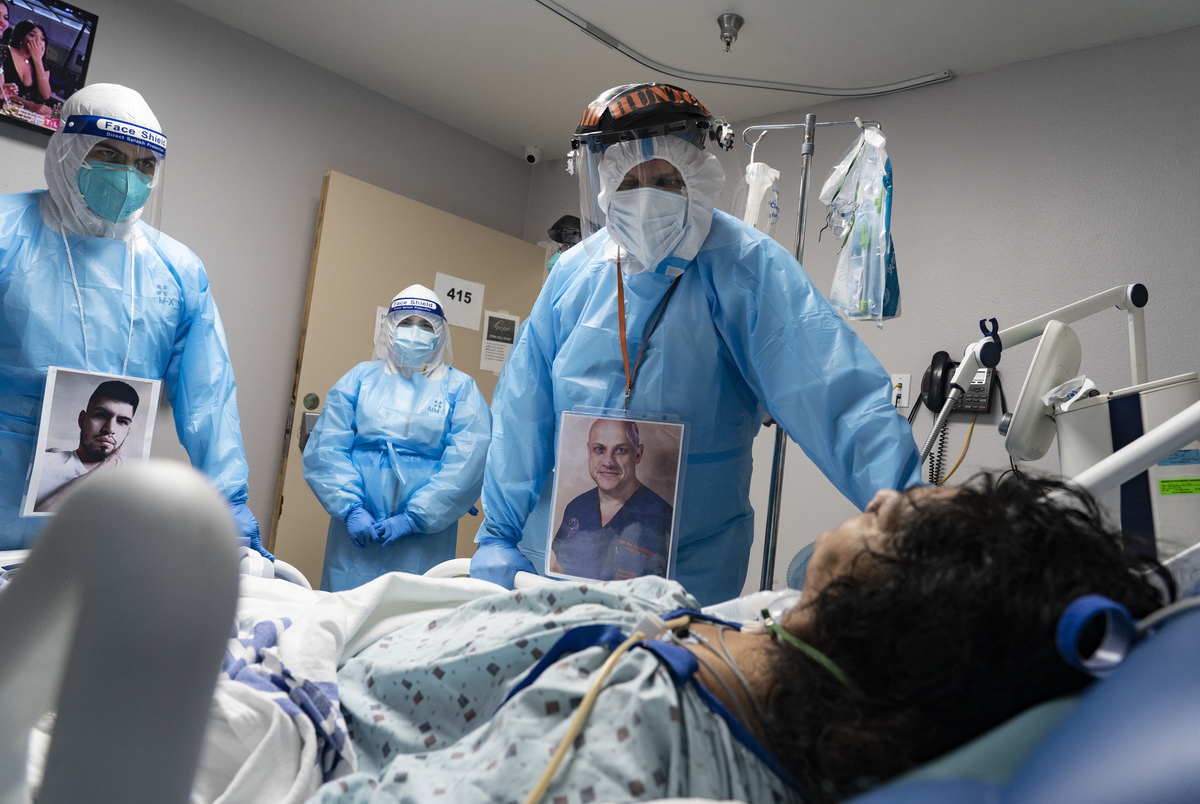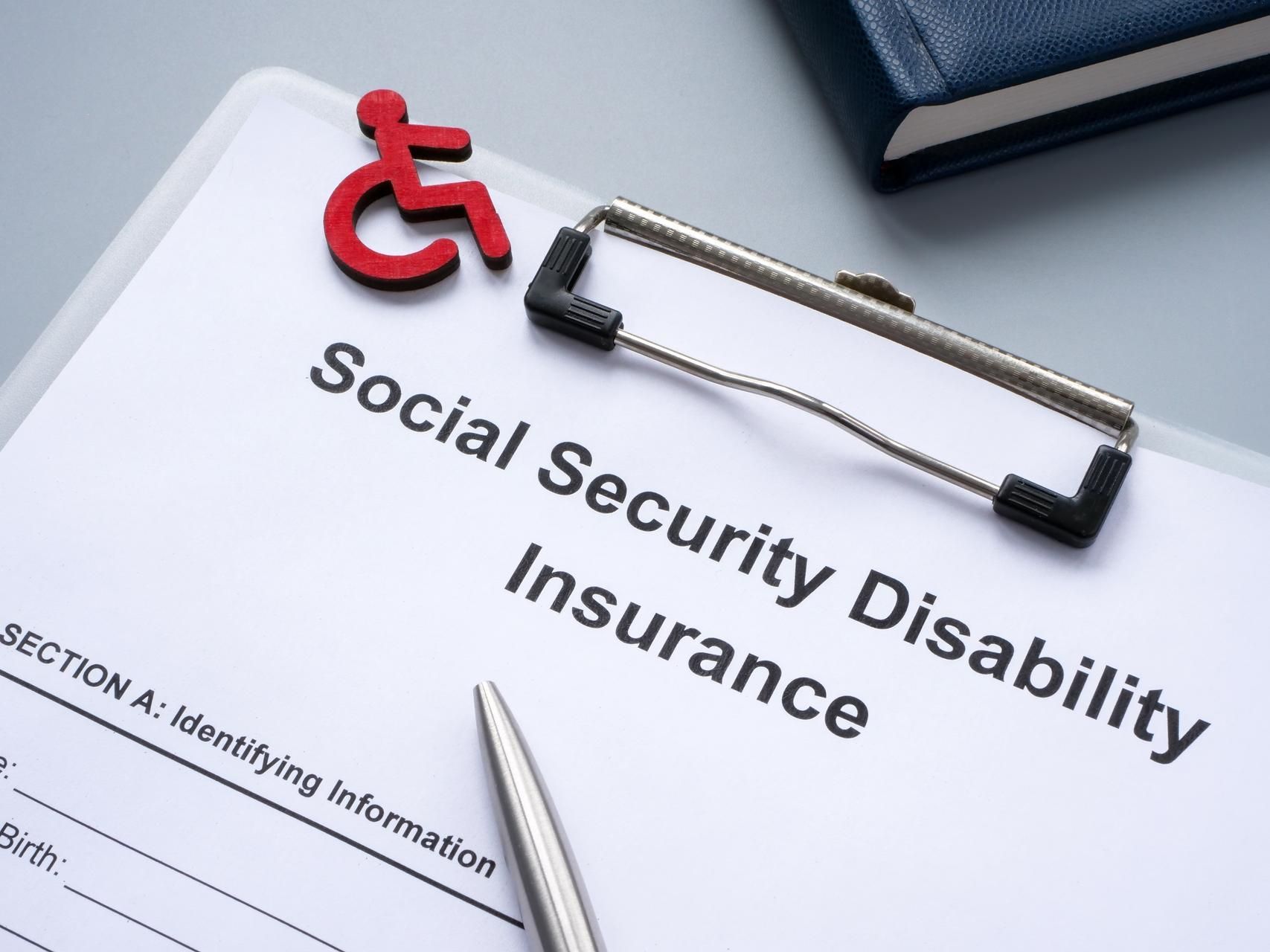Memory Effects Of Prolonged COVID-19 Can Resemble Alzheimer’s : Pictures

Clinical staff members members look at on a affected person in the COVID-19 Intense Care Device at United Memorial Healthcare Heart in Houston past November. Medical doctors are now investigating irrespective of whether individuals with lingering cognitive indications may possibly be at risk for dementia.
Go Nakamura/Bloomberg by means of Getty Visuals
hide caption
toggle caption
Go Nakamura/Bloomberg via Getty Images

Clinical staff customers look at on a individual in the COVID-19 Intensive Care Unit at United Memorial Health care Centre in Houston last November. Doctors are now investigating regardless of whether men and women with lingering cognitive signs may possibly be at hazard for dementia.
Go Nakamura/Bloomberg by means of Getty Pictures
Before she got COVID-19, Cassandra Hernandez, 38, was in fantastic condition — both of those bodily and mentally.
“I’m a nurse,” she claims. “I function with surgeons and my memory was sharp.”
Then, in June 2020, COVID-19 struck Hernandez and a number of other people in her unit at a significant hospital in San Antonio.
“I went house just after doing work a 12-hour shift and sat down to consume a pint of ice cream with my spouse and I couldn’t style it,” she claims.
The decline of flavor and scent can be an early indicator that COVID-19 is affecting a mind area that allows us feeling odors.
Hernandez would go on to shell out two months in the clinic and months at house disabled by indicators which includes tremors, extraordinary fatigue and challenges with memory and contemplating.
“I would actually fall asleep if I was owning a dialogue or doing nearly anything that involved my brain,” she states.
Alzheimer’s scientists sharing conclusions on COVID-19
Now, researchers at UT Well being San Antonio are researching patients like Hernandez, making an attempt to understand why their cognitive issues persist and no matter whether their brains have been adjusted in means that elevate the threat of acquiring Alzheimer’s illness.
The San Antonio researchers are between the groups of scientists from close to the world who will present their findings on how COVID-19 influences the brain at the Alzheimer’s Affiliation Global Meeting, which begins Monday in Denver.
What scientists have found so far is relating to.
For example, PET scans taken just before and following a particular person develops COVID-19 suggest that the an infection can induce adjustments that overlap these seen in Alzheimer’s. And genetic studies are acquiring that some of the exact genes that boost a person’s danger for getting serious COVID-19 also raise the danger of producing Alzheimer’s.
Alzheimer’s diagnoses also seem to be a lot more widespread in individuals in their 60s and 70s who have experienced significant COVID-19, claims Dr. Gabriel de Erausquin, a professor of neurology at UT Health and fitness San Antonio. “It truly is downright terrifying,” he suggests.
A decline of odor can signal hassle
And de Erausquin and his colleagues have noticed that mental troubles appear to be extra popular in COVID-19 patients who drop their sense of odor, most likely for the reason that the illness has impacted a mind region identified as the olfactory bulb.
“Persistent deficiency of smell, it is really associated with brain changes not just in the olfactory bulb but people locations that are linked just one way or another to the scent sense,” he states.
Those locations incorporate locations associated in memory, imagining, organizing and temper.
COVID-19’s results on the brain also feel to change with age, de Erausquin says. Individuals in their 30s appear extra probably to acquire anxiousness and despair.
“In older men and women, persons more than 60, the foremost manifestation is forgetfulness,” he suggests. “These people are inclined to neglect exactly where they put points, they tend to fail to remember names, they are likely to neglect phone figures. They also have problems with language they get started forgetting words and phrases.”
The indications are equivalent to these of early Alzheimer’s, and medical doctors sometimes explain these clients as possessing an Alzheimer’s-like syndrome that can persist for quite a few months.

“Those people today glimpse really bad correct now,” de Erausquin suggests. “And the expectation is that it may perhaps behave as Alzheimer’s behaves, in a progressive vogue. But the correct respond to is we really don’t know.”
Another scientist who will existing research at the Alzheimer’s meeting is Dr. Sudha Seshadri, founding director of the Glenn Biggs Institute for Alzheimer’s and Neurodegenerative Diseases at UT Well being San Antonio.
The probability that COVID-19 could boost the risk of Alzheimer’s is alarming, Seshadri suggests. “Even if the result is modest, it can be something we are heading to have to element in simply because the population is pretty huge,” she states.
In the U.S. by yourself, millions of persons have developed persistent cognitive or temper issues just after receiving COVID-19. It might consider a ten years to know regardless of whether these people are more probable than uninfected persons to establish Alzheimer’s in their 60s and 70s, Seshadri says.
Scientific studies of people who have experienced COVID-19 may perhaps support researchers comprehend the position infections enjoy in Alzheimer’s and other brain ailments. Past study has advised that exposure to specific viruses, including herpes, can trigger an immune response in the mind that may well established the phase for Alzheimer’s.
“If 1 understands how the immune response to this virus is accelerating [Alzheimer’s] sickness, we may find out about the effect of other viruses,” Seshadri suggests.
A extensive street again from COVID-19
Meanwhile, folks like Cassandra Hernandez, the nurse, are simply making an attempt to get greater. A lot more than a 12 months soon after receiving ill, she suggests, her mind is continue to foggy.
“We had been at meal and I forgot how to use a fork,” she claims. “It was uncomfortable.”
Even so, Hernandez says she’s increasing — bit by bit.
“Just before this I was doing the job on my master’s,” she says. “Now I can do fundamental math, addition and subtraction, I can go through at a fifth-grade degree. I am nonetheless performing hard each individual working day.”
Hernandez has been functioning with Dr. Monica Verduzco-Gutierrez, chair of the division of actual physical drugs and rehabilitation at UT Overall health and director of the COVID-19 restoration clinic.
Verduzco-Gutierrez states her follow applied to revolve all-around people recovering from strokes and traumatic brain accidents. Now she spends some times seeing only patients recovering from COVID-19.
The most widespread grievance is fatigue, Verduzco-Gutierrez says. But these people also often encounter migraine headaches, forgetfulness, dizziness and stability problems, she suggests.
Some of these sufferers may possibly by no means get well completely, Verduzco-Gutierrez suggests. But she’s hopeful for Hernandez.
“She’s made so significantly enhancement and I would like for her to go back again to nursing,” Verduzco-Gutierrez states. “But yet again, we do not know what occurs with this disorder.”








